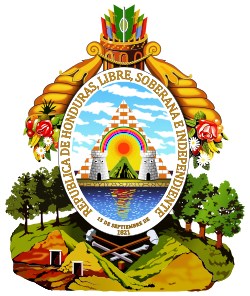 |
|---|
General elections were held in Honduras between 29 and 31 October 1911. Manuel Bonilla was elected president. [1]
 |
|---|
General elections were held in Honduras between 29 and 31 October 1911. Manuel Bonilla was elected president. [1]
In 1907 president Manuel Bonilla was removed from office and replaced by Miguel R. Dávila. Dávila was confirmed as president by a Constituent Assembly elected the following year. [1] On 10 January 1911 Dávila signed the Paredes-Knox Convention with the United States and American banks, which would guarantee them control of Honduras' customs revenue in return for a loan. This was unpopular with opponents, who accused him of "selling the country to the foreigners". [1] During this period of tension, Bonilla began an invasion, capturing Trujillo on the day the convention was signed, although further advances were stopped by the presence of the USS Tacoma. [1] On 31 January Congress rejected the Paredes-Knox Convention
The United States arranged for mediation between Bonilla and Dávila, whose representatives met on the Tacoma between 21 February and 15 March. [1] Agreement was reached for Dávila to resign and Francisco Bertrand be appointed as provisional president. Dávila subsequently resigned on 28 March and presidential elections were called. [1]
Bonilla was elected president and Francisco Bográn elected vice president. However, Bográn declined to take office and Bertrand was elected in his place. [1]